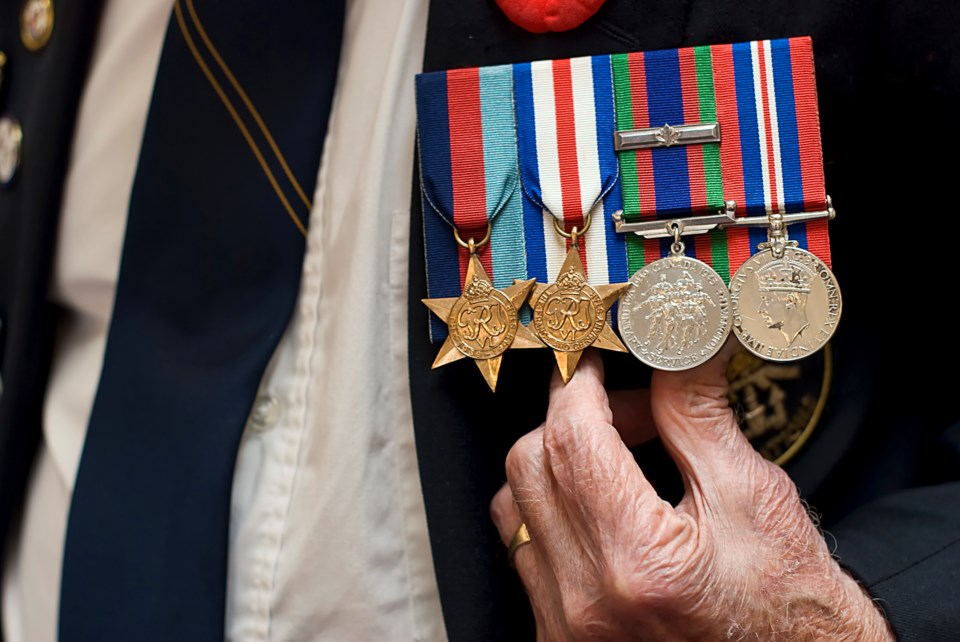The Federal Court has certified a class-action suit against the Government of Canada, brought on behalf of 10,000 Canadian military veterans who suffered injuries during their service.
Representative plaintiff, Sean Bruyea, alleged that Canada provided poor advice to these veterans in its administration of the earnings loss benefit and the supplementary retirement benefit (SRB), causing loss to the veterans and their dependants.
Justice Catherine Kane heard the case in Ottawa June 6 to 8; her decision was released Oct. 17.
Bruyea is a Royal Military College 1986 graduate and served as an intelligence officer in the Canadian Air Force for 14 years. He was deployed to Qatar during the first Gulf War in 1990-91 but retired due to medical consequences of that war.
He said the action is about addressing the overwhelming and discouraging bureaucratic complexity in benefits for Canada's disabled veterans.
“We sacrificed so much, and in return, we ask that Canada recognize that sacrifice, at the very least, by having a duty to meaningfully inform our veterans and their families of the benefits they are entitled to because of those sacrifices,” he said. “I am so deeply relieved that Justice Kane did not side with the government's position that Canada owes no duty of care to our most disabled veterans."
The program in question was established by the federal government to compensate for lower pension earnings and retirement benefits payable to veterans unable to engage in suitable gainful employment because of service-related injuries and disabilities that rendered them totally and permanently incapacitated.
The class action asserts the scheme is unduly complex and difficult to navigate.
The government argued pursuing the action as a class proceeding would provide “a means for class members to overcome the obstacles they face to seek access to justice, including their psychological, cognitive and physical disabilities, and the prohibitive cost of individual litigation,” Kane said.
“This is especially true for veterans suffering from cognitive and psychological injuries and illnesses — who find it almost impossible to determine which benefits they are entitled to,” said a statement from claimant’s law firm, Vancouver-based Murphy Battista.
The suit alleges employees of Veterans Affairs Canada (VAC) lacked sufficient training, expertise and awareness of the various benefit programs, including the SRB, to explain and communicate such programs to veterans.
On May 13, 2020, the Veterans Ombudsman issued a report about the benefit payout, concluding there were possible systemic issues relating to the way that veterans were counselled or not counselled regarding benefit eligibility.
“This issue is not about ensuring veterans are financially secure, but rather a case of equity, where a veteran should not be disadvantaged in terms of an SRB payout due to a lack of knowledge or understanding about VAC programs,” that report said.
The government had argued that a class action was not the preferable procedure for a claim of negligent misrepresentation, that there are too many differences between class members’ individual circumstances.
The judge said reviews of individual circumstances were not feasible.
“The time for such a review is limited and has passed,” Kane said.
Kane certified several questions to be decided in the lawsuit:
- did the government owe a duty of care to class members to properly advise them of the eligibility requirements for benefits and the steps they needed to take in order to maximize the benefits payable to them?;
- if the government owed class members a duty of care, did it breach the standard of care? and;
- if the government breached the standard of care, did the class members suffer damages as a result?
Class lawyer Angela Bespflug said the legal action seeks justice for veterans who “selflessly risked their lives in service to their country and who sustained severe physical and psychological injuries as a result.”
“The action alleges that these veterans received less in income-replacement benefits than they were entitled to receive because Canada failed to reasonably inform them of the benefits available to them and, in fact, provided erroneous advice to them with respect to these benefits,” she said.




